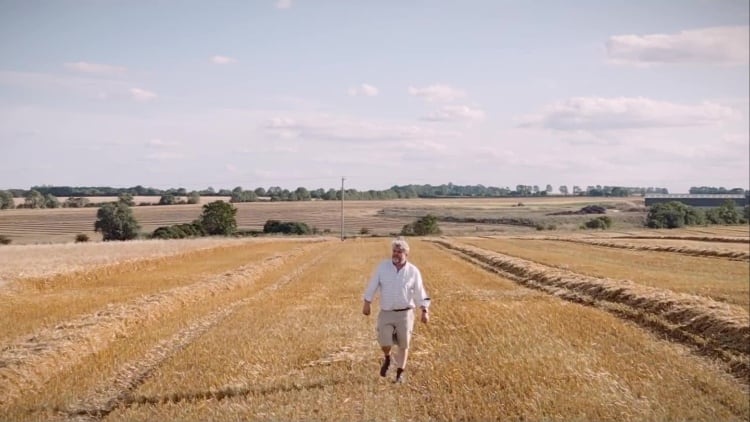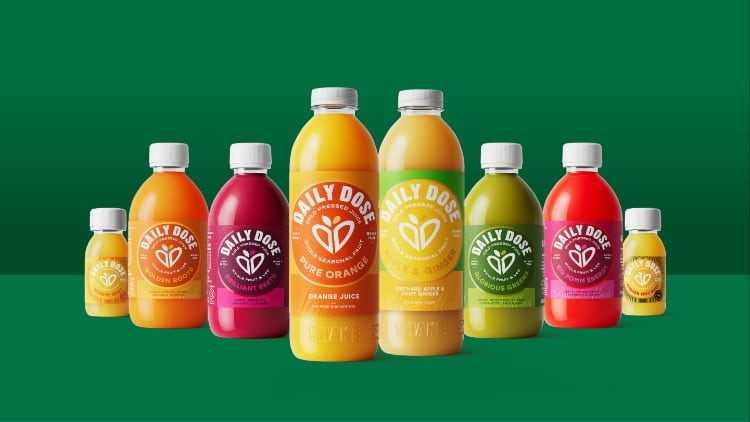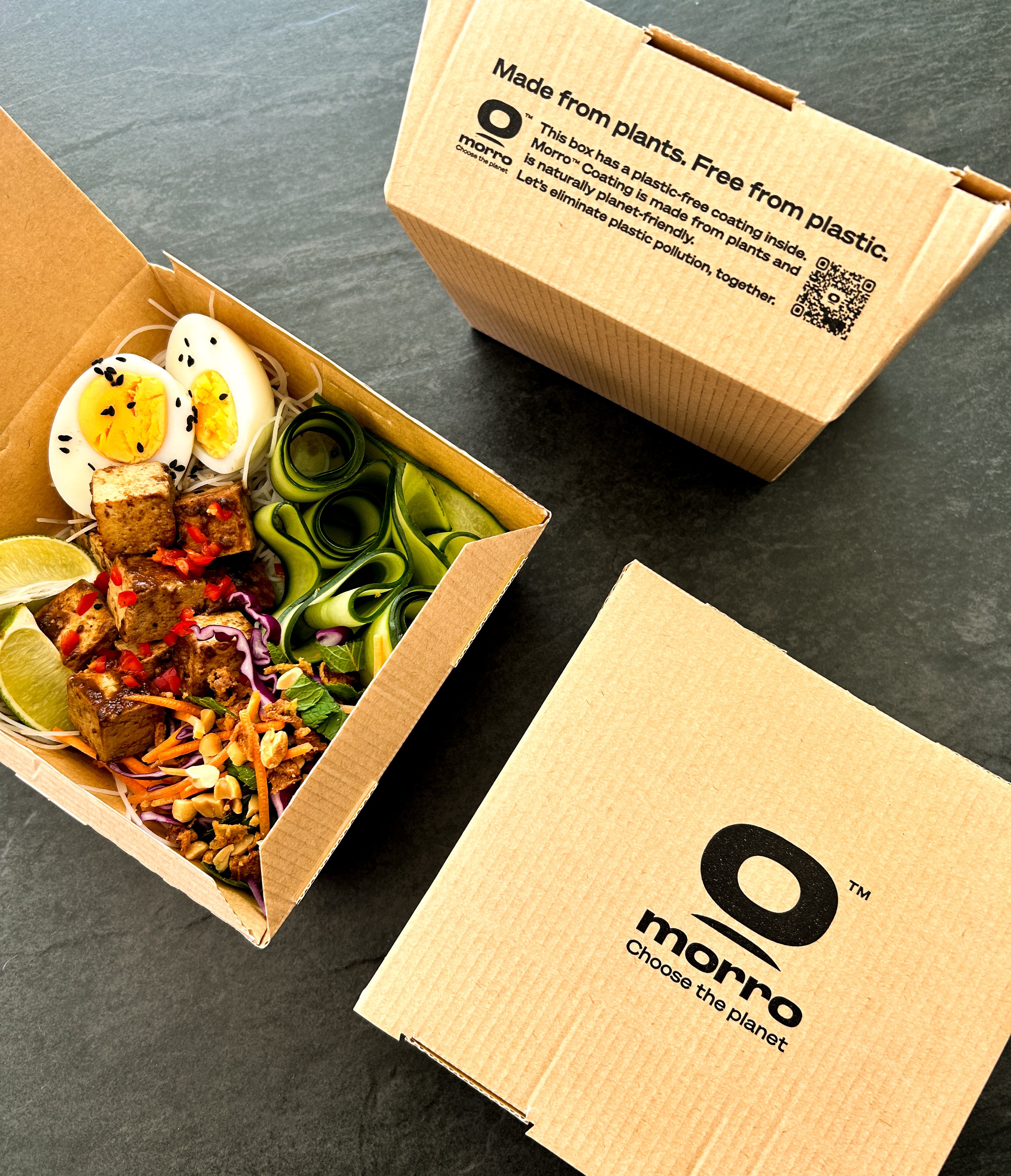As Organic September draws to a close it’s an opportune time to reflect on the remarkable growth of the UK’s organic market.
Over the past year, the sector has surged to £3.7 billion, expanding four times faster than conventional sales according to Nielsen, with more consumers sourcing products labelled as organic, even when they come at a higher price tag.
The Soil Association’s latest annual report shows that lower-income shoppers display higher rates of purchasing organic products consistently across multiple categories – often choosing goods on special occasions or as a small trade-up to quality.
It’s a remarkable shift, especially in a cost-of-living climate where over 10 million shoppers are saving less and are having to make more careful purchasing decisions. So, what’s driving this shift?
A generation of health conscious consumers
A growing focus on health and wellbeing is a major factor. More people are increasingly scrutinising the ingredients in their food and are particularly concerned over ultra processed products and their potential health impacts. Studies linking these foods to serious health issues have made people more cautious about what they eat.
According to the FSA’s annual report published in June, more than three quarters of consumers surveyed expressed concern about ultra processed or the over-processing of food. While three million people actively avoid them all together.
The trend is also encouraging a return to home cooking as people are seeking to regain control over what goes into their meals. Cooking from scratch using whole, minimal ingredients is on the rise as it allows consumers to prioritise nutrition, while also reducing reliance on heavily processed foods.
Whole, minimally processed ingredients are on the rise, and oats in particular, have seen strong growth thanks to their natural health benefits. Oats are naturally high in soluble fibre, particularly beta glucan, which is associated with lowering cholesterol levels and promoting gut health, and can be used a wide range of dishes from breakfast bakes to smoothies.
Unlike conventional oats, which are often treated with fertilisers to accelerate growth or with herbicides such as glyphosate to control weeds on the land, organic oats rely on soil-restoring rotations, composting and other natural methods to maintain health.
Organic standards also prohibit artificial preservative or flavour enhancers and GMOs. This means organic oats are not only free from chemical residues but are also processed in a way that avoids artificial preservation, to deliver a clean and minimally processed products.
Support for sustainable farming practices
People are also aware of how conventional farming methods harm the planet and are in support of more sustainable practices. Intensive conventional farming can degrade soil structure and lead to nutrient runoff, which harms nearby waterways and ecosystems.
At Glebe Farm, whether producing conventional or organic oats, we’re committed to regenerative farming practices that restore and protect the land. For instance, we use dual cropping and natural reed-bed filtration systems to restore soil and reduce environmental impact on our land.
Water waste from our production site is also filtered through specially developed reed beds before being used to irrigate our fields – an efficient, closed-loop system that nurtures our land. We also source our organic oats locally within a 70 mile radius to reduce transport emissions and utilise oat by products for energy and animal feed, to create a circular economy.
As part of this effort, two of our SKUs in our range - organic porridge oats and organic barista oat drinks - are certified by the Soil Association, meeting strict organic standards. But it’s not easy to get this accreditation.
Farms are rigorously inspected and must demonstrate consistent commitment to sustainable practices. Every element of our operation is scrutinised, and meeting these requirements demands continuous effort, innovation, and care.
Earning this accreditation is a mark of genuine, verifiable sustainability. It reflects our dedication and responsibility to ensure that our oats are not just high-quality but grown in a way that protects and regenerates the planet for future generations.
Backing British organic farming
The UK however is falling far behind our European neighbours, with just 3% of our farmland being managed organically compared with 10.4% in the EU, despite growing demand for organic produce. This mismatch means much of the organic food produce on shelves is imported, with goods often travelling thousands of miles before reaching the consumer. This not only undermines the environmental benefits of organic farming but also increases carbon emissions.
By relying so heavily on imported goods, the UK is also missing out on the environmental benefits delivered by organic systems. According to a University of Oxford study, organic farmland supports an average of 34% more plant, insect and animal species than non-organic.
At the same time, consumer behaviour is switching in favour of British organic goods. Research suggests shoppers are paying more attention to British provenance and traceability, actively seeking out British grown organic produce – and are even willing to pay a premium for it. It’s clear that UK consumers are willing to put their money behind products that align with their health and sustainability values. Certified organic labels play a key role here, offering the reassurance people are looking for about where their food comes from.
This presents a strong incentive to expand the domestic organic food and drink market and meet demand. But it requires both retailer and government support.
Strategic investment in this space could provide existing organic farmers with the resources needed to expand acreage and increase production more efficiently – whether through AI-driven soil monitoring, mechanical weeding, or crop diversification strategies. It could also encourage more farmers to adopt organic standards, helping to grow the sector even faster.
The path forward
However, the transition to organic farming isn’t straightforward. Farmers must follow organic standards for two years before they can sell their goods at organic prices which can be a huge financial strain. Especially for smaller sized farms. More targeted support such as subsidies could help overcome this barrier and help the UK organic sector thrive.
Ultimately, organic benefits reach far beyond the farm gate. By removing barriers and creating clear pathways for farmers, we can support healthier communities, a stronger local economy, and a more sustainable environment for generations to come.




